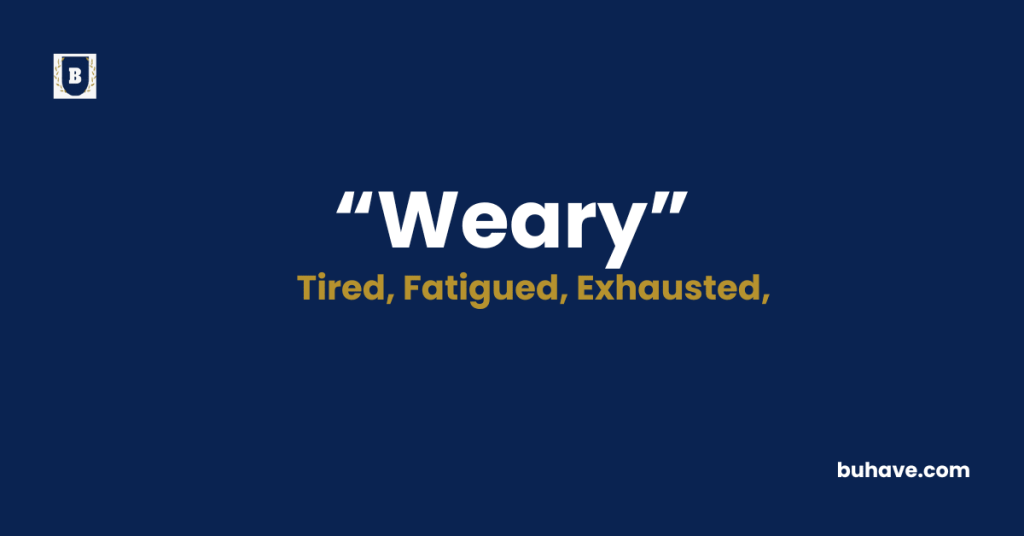The word ‘Weary’ (Adjective) describes a state of physical or mental exhaustion, often resulting from prolonged effort, stress, or monotony. In this guide, you’ll learn the full definition, synonyms, antonyms, etymology, and real-life examples of how to use ‘Weary’ correctly in sentences.
Weary Explained in Depth
A complete and detailed guide to the word Weary including meaning, definition, examples, etymology, synonyms, and antonyms.
Meanings of Weary
‘Weary’ refers to feeling tired, worn out, or fatigued—either physically, emotionally, or mentally. It can also imply a sense of boredom or disinterest from repetitive experiences or overexertion.
Definition
Weary (adjective): feeling or showing tiredness, especially as a result of excessive exertion or lack of rest; lacking enthusiasm or patience.
Etymology
The word ‘Weary’ originates from Old English wērig, meaning “tired, exhausted, miserable.” It is related to Old High German worag (tired) and ultimately comes from Proto-Germanic roots suggesting fatigue or suffering from toil.
Example Sentences
- She was weary after working a double shift at the hospital.
- He gave a weary sigh, tired of repeating the same explanation.
- The travelers looked weary but relieved to reach their destination.
- Weary of the constant arguments, she sought a peaceful retreat.
- His weary eyes revealed the weight of many sleepless nights.
Weary Synonyms
- Tired
- Exhausted
- Fatigued
- Worn out
- Burned out
- Sleepy
- Spent
- Listless
- Run-down
- Drained
Weary Antonyms
- Energetic
- Refreshed
- Rested
- Vigorous
- Alert
- Lively
- Awake
- Invigorated
- Rejuvenated
- Enthusiastic
FAQs about Weary
Here’s a FAQ-style guide about the word “Weary”
1. Is ‘weary’ more mental or physical?
‘Weary’ can describe both physical tiredness and mental or emotional fatigue.
2. Can ‘weary’ be used as a verb?
Yes. As a verb, it means to cause someone to become tired or bored (e.g., “He wearied of the routine”).
3. Is ‘weary’ stronger than ‘tired’?
Yes, ‘weary’ often implies a deeper, more prolonged tiredness than simply being ‘tired.’
4. How is ‘weary’ used in literature?
Writers often use ‘weary’ to convey emotional depth, especially when describing hardship or long struggles.
5. Does ‘weary’ have a negative connotation?
Generally, yes—it suggests discomfort, fatigue, or emotional burden.

















